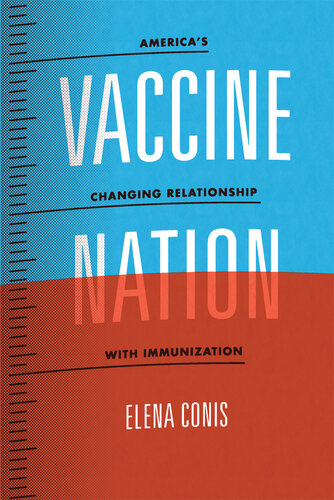
Vaccine Nation
America's Changing Relationship with Immunization
- اطلاعات
- نقد و بررسی
- دیدگاه کاربران
نقد و بررسی

November 1, 2014
Conis (history, Emory Univ.) examines how vaccines were developed, marketed, promoted, and talked about by families, the government, medicine, and the press during the last half of the 20th century. The author begins with the polio vaccine and the Kennedy administration's efforts to eliminate the disease, then discusses how pharmaceutical companies developed shots for less severe conditions such as measles and mumps. According to Conis, the companies engaged in media campaigns to make the public perceive these and other diseases as severe threats to public health. Exploring the backlash against the medical establishment in the 1970s, the author discusses how individuals resisted forms of inoculation, finding mandatory immunization programs to be violations of personal freedom. The book also explores the ways new media allowed for an "anti-vaccine" campaign to begin, especially claims that treatments were linked to increased occurrences of autism. VERDICT This fascinating book is for those interested in the history of medicine and in the relationship between medicine and American culture. Scholars, public health officials, and some general readers will find Conis's thesis--that changing social attitudes about the role of government in health, the place of individual freedoms, and an individual's duty to a larger society shaped how citizens thought about vaccines--to be cogent and carefully argued.--Aaron Klink, Duke Univ., Durham, NC
Copyright 2014 Library Journal, LLC Used with permission.




دیدگاه کاربران